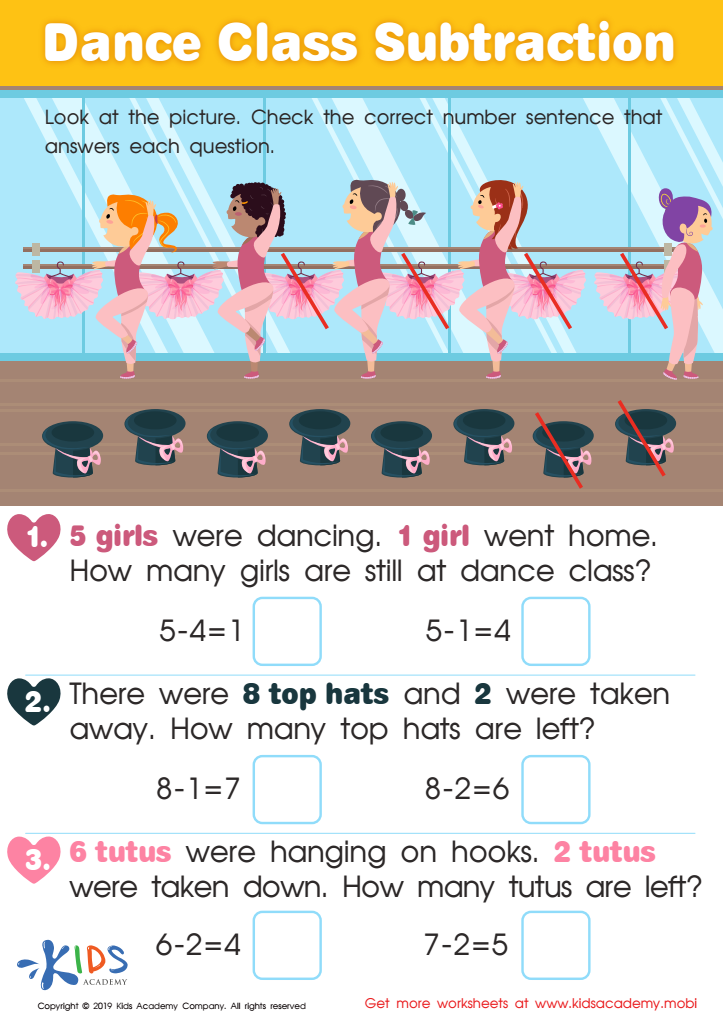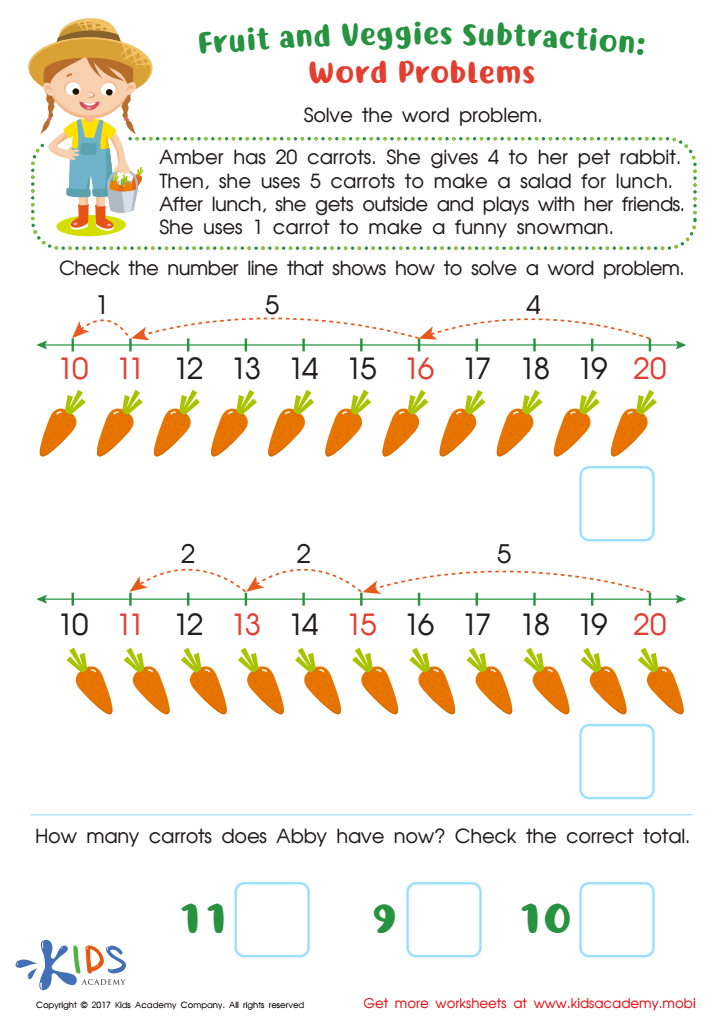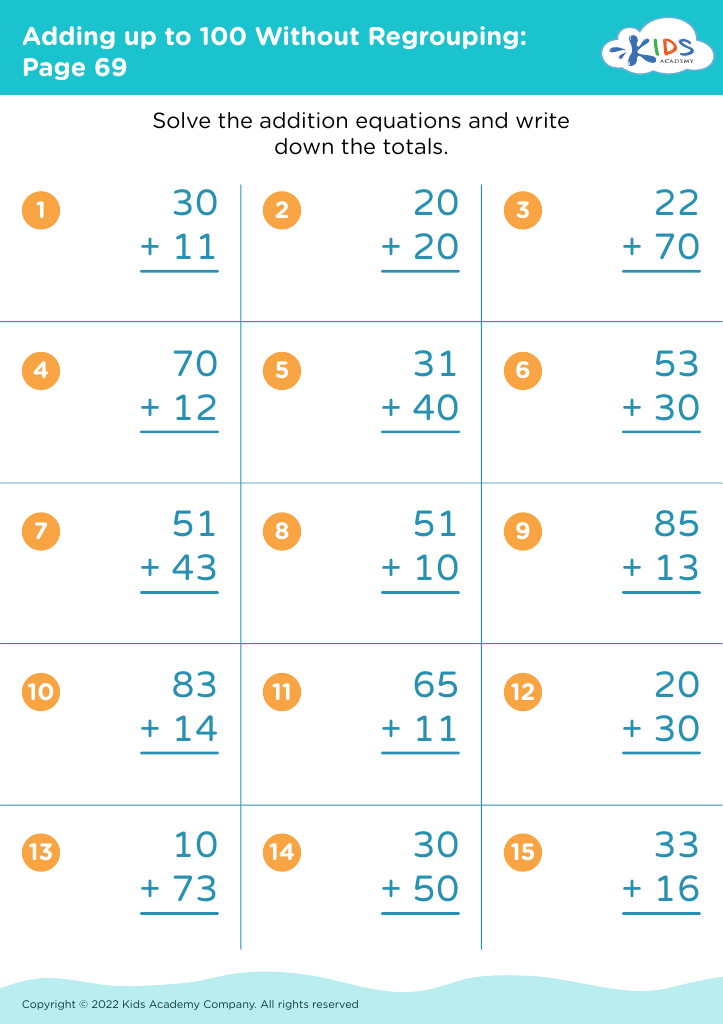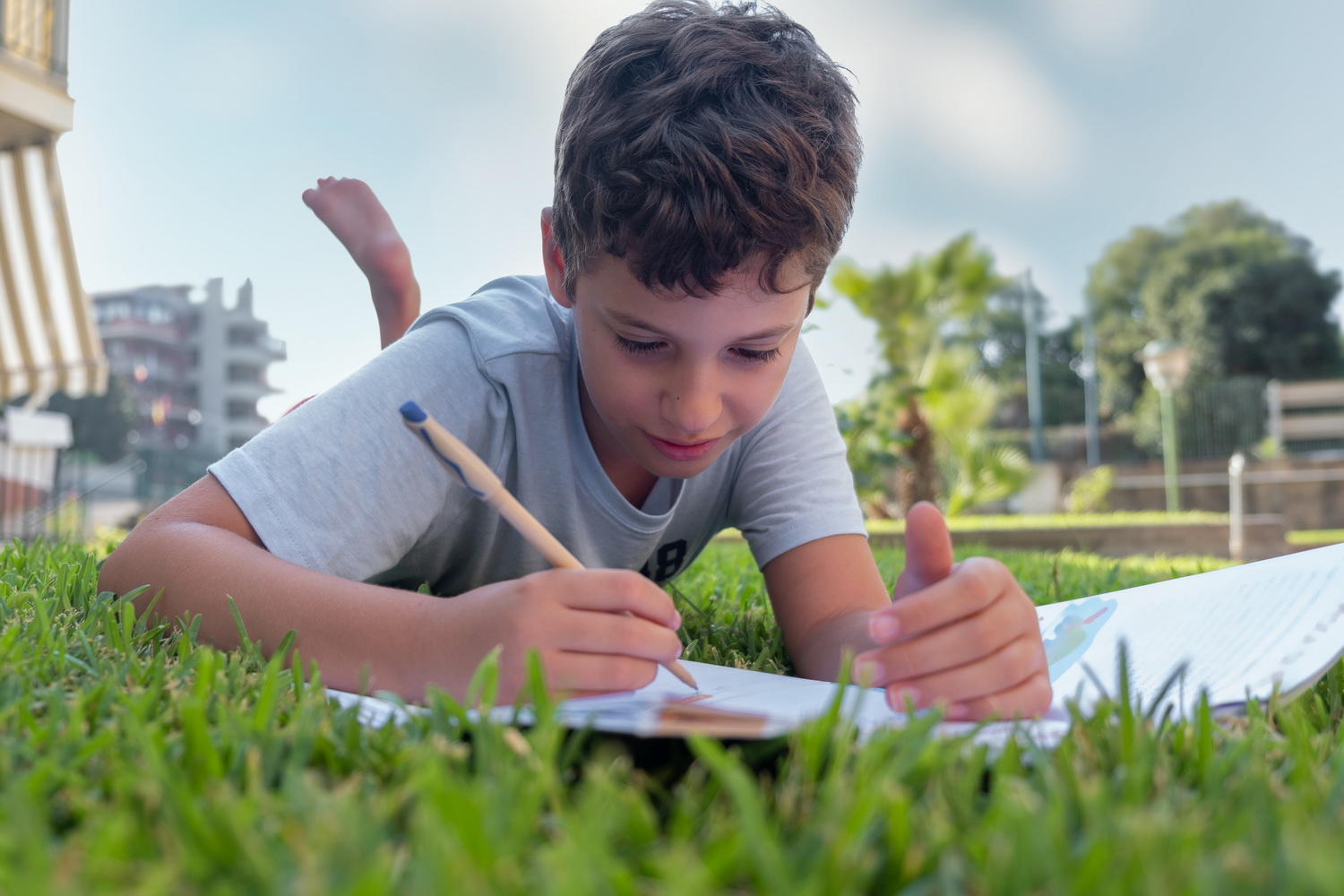Improve subtraction skills Worksheets for Ages 3-7
4 filtered results
-
From - To
Enhance your child's subtraction skills with our engaging worksheets designed specifically for ages 3-7. These printable resources feature fun illustrations and age-appropriate exercises that make learning subtraction enjoyable and interactive. From basic concepts to more challenging problems, our worksheets cater to various skill levels, ensuring that every child can progress at their own pace. Encourage your little ones to master subtraction through playful activities that strengthen their math foundation, boost confidence, and stimulate critical thinking. Perfect for home or classroom use, our subtraction worksheets provide an excellent opportunity for hands-on learning. Start your child's math journey today!


Dance Class Subtraction Worksheet


Subtraction Word Problems Printable
Improving subtraction skills in children aged 3-7 is crucial for several reasons. First, it lays a strong foundation for mathematical understanding. Early exposure to subtraction helps children grasp basic concepts such as taking away, which is essential for their overall cognitive development. When children engage with subtraction, they learn to think critically and solve problems, building essential reasoning skills that benefit them in school and beyond.
Furthermore, mastering subtraction fosters confidence in young learners. When children can successfully navigate basic subtraction problems, they develop a sense of achievement that encourages them to tackle more complex math concepts in the future. This confidence can extend to other areas of learning, promoting a positive attitude toward education.
Additionally, strengthening subtraction skills enhances real-life applications, as children will encounter subtraction in everyday situations, such as sharing and budgeting. Engaging parents and teachers in this process by using fun activities and encouraging hands-on practice reinforces learning and solidifies their understanding.
In summary, fostering subtraction skills in young children not only supports their mathematical development but also contributes to their overall intellectual growth, confidence, and real-life problem-solving abilities. Parents and teachers play a vital role in making this learning both enjoyable and effective.
 Assign to My Students
Assign to My Students









.jpg)












